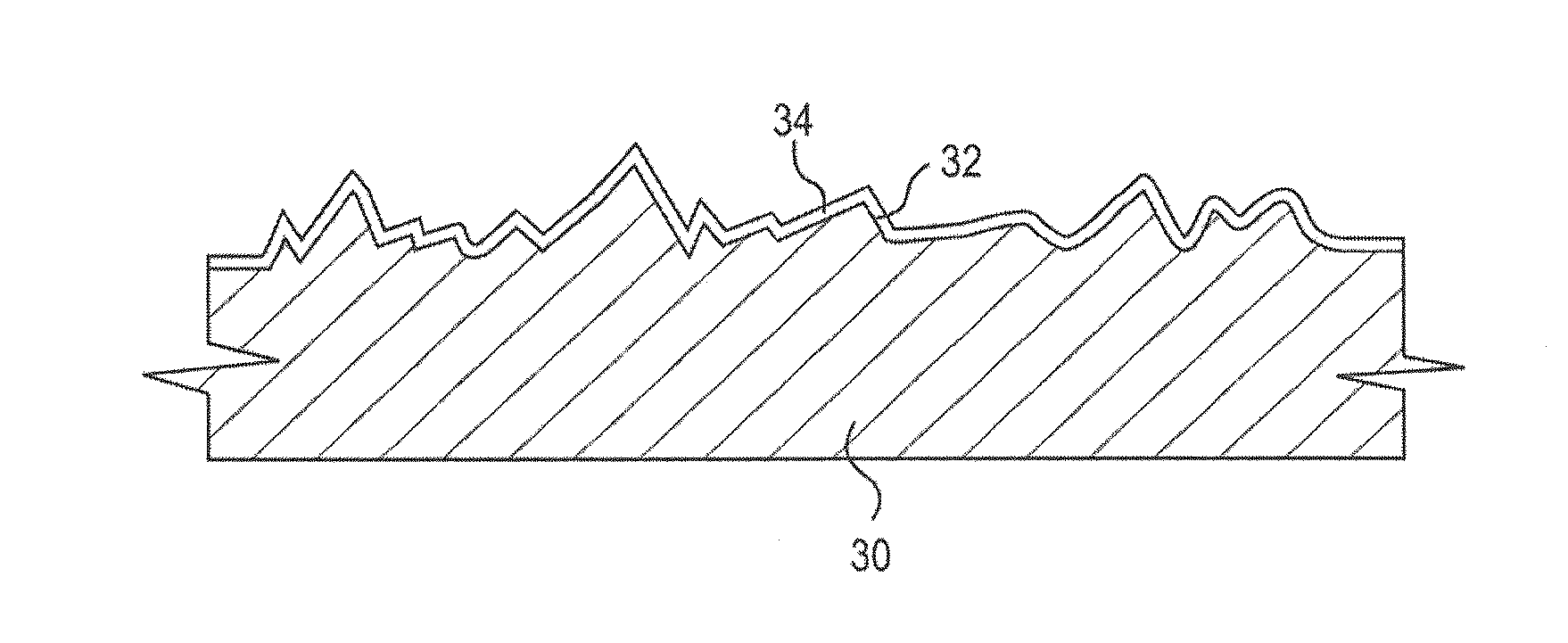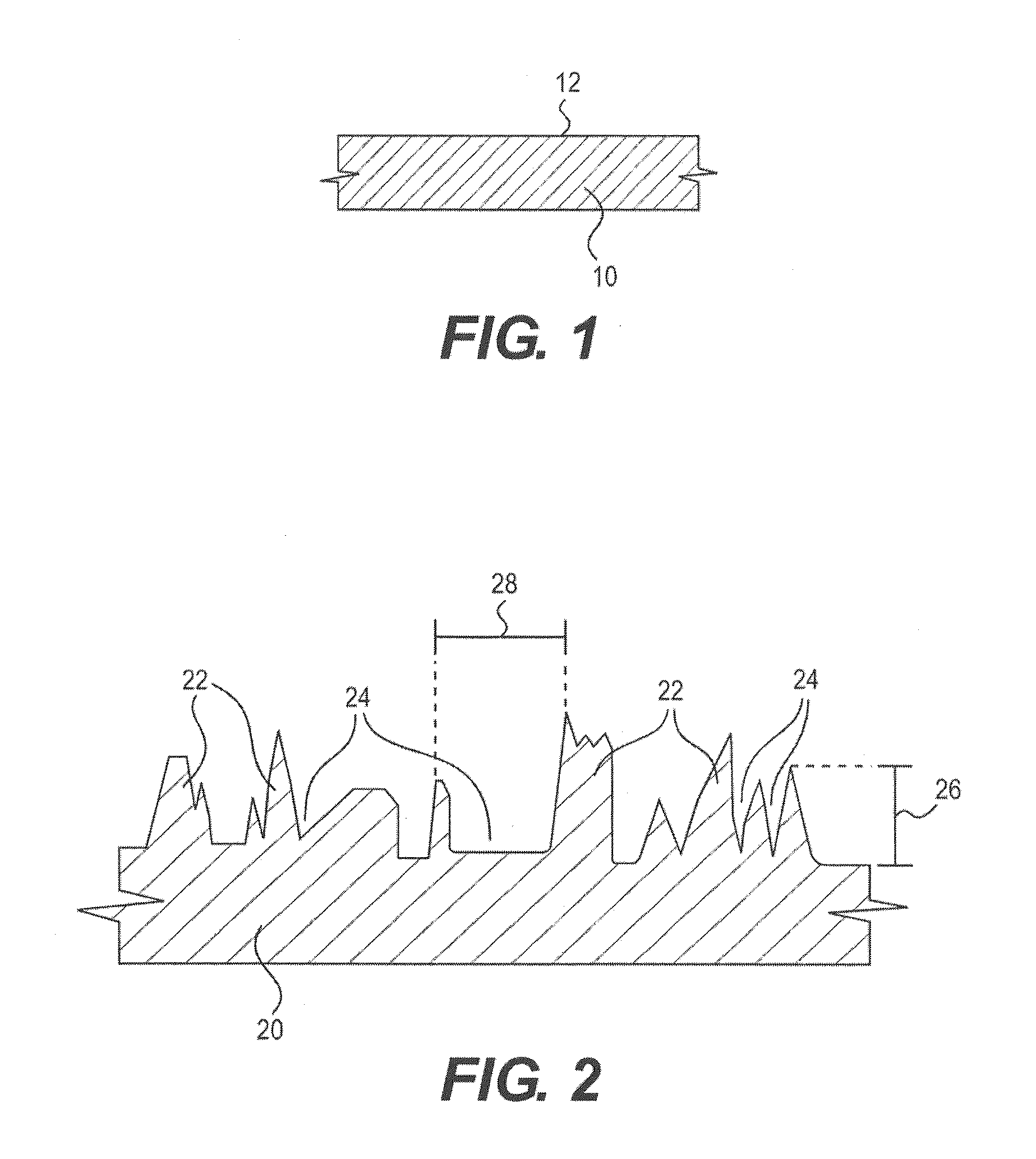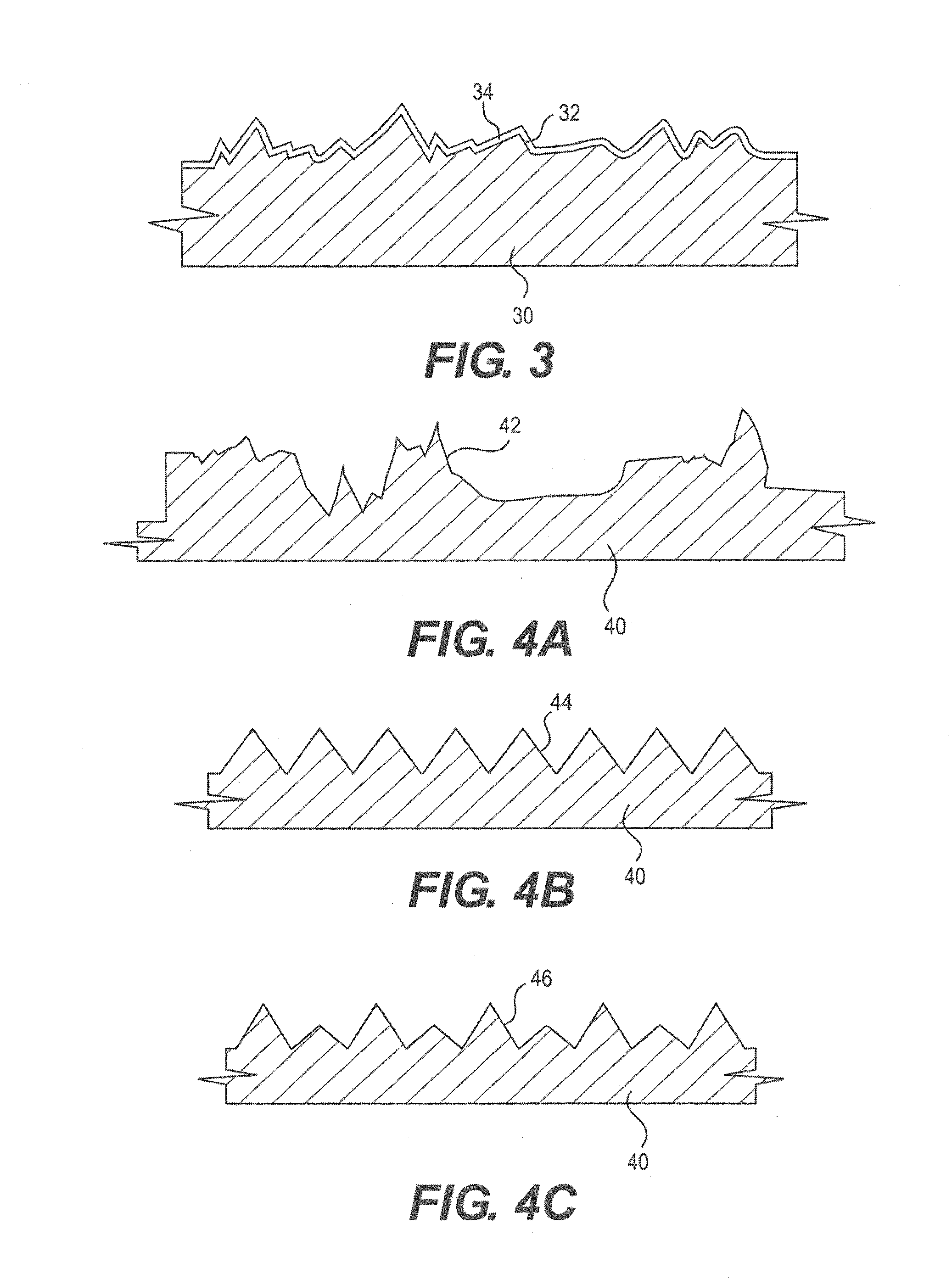Modified Surface Having Low Adhesion Properties To Mitigate Insect Residue Adhesion
a technology of modified surface and insect residue, which is applied in the direction of air-flow influencers, nuclear engineering, transportation and packaging, etc., can solve the problems of increasing drag and fuel burn, increasing fuel efficiency, and transitioning from laminar to turbulent flow, so as to reduce adhesion surface properties and mitigate insect residue adhesion
- Summary
- Abstract
- Description
- Claims
- Application Information
AI Technical Summary
Benefits of technology
Problems solved by technology
Method used
Image
Examples
example
[0032]An aluminum alloy is used and topographically modified. The topographical modification of the aluminum alloy samples was realized using two techniques: spray deposition and laser ablation patterning following by chemical modification. For the spray deposition example, a solution was generated by combining nanometer sized silica particles with a hydrophobic coating (heptadecafluoro-1,1,2,2-tetrahydrodecyltriethoxysilane) in aqueous ethanol solution. For comparison, a similar solution was made with the only variation being the use of a hydrophilic coating (methoxy(polyethyieneoxy) propyltrimethoxysilane) instead of the hydrophobic coating. For the laser ablation patterned surfaces, patterning was performed with a PhotoMachining, Inc. laser ablation system equipped with a Coherent Avia® frequency-tripled Nd:YAG laser (355 nm, average power: 7 W). The laser beam diameter and scan speed were kept constant at 25 micrometers and 25.4 cm / s. A series of different laser parameters were ...
PUM
| Property | Measurement | Unit |
|---|---|---|
| Angle | aaaaa | aaaaa |
| Length | aaaaa | aaaaa |
| Length | aaaaa | aaaaa |
Abstract
Description
Claims
Application Information
 Login to View More
Login to View More - R&D
- Intellectual Property
- Life Sciences
- Materials
- Tech Scout
- Unparalleled Data Quality
- Higher Quality Content
- 60% Fewer Hallucinations
Browse by: Latest US Patents, China's latest patents, Technical Efficacy Thesaurus, Application Domain, Technology Topic, Popular Technical Reports.
© 2025 PatSnap. All rights reserved.Legal|Privacy policy|Modern Slavery Act Transparency Statement|Sitemap|About US| Contact US: help@patsnap.com



